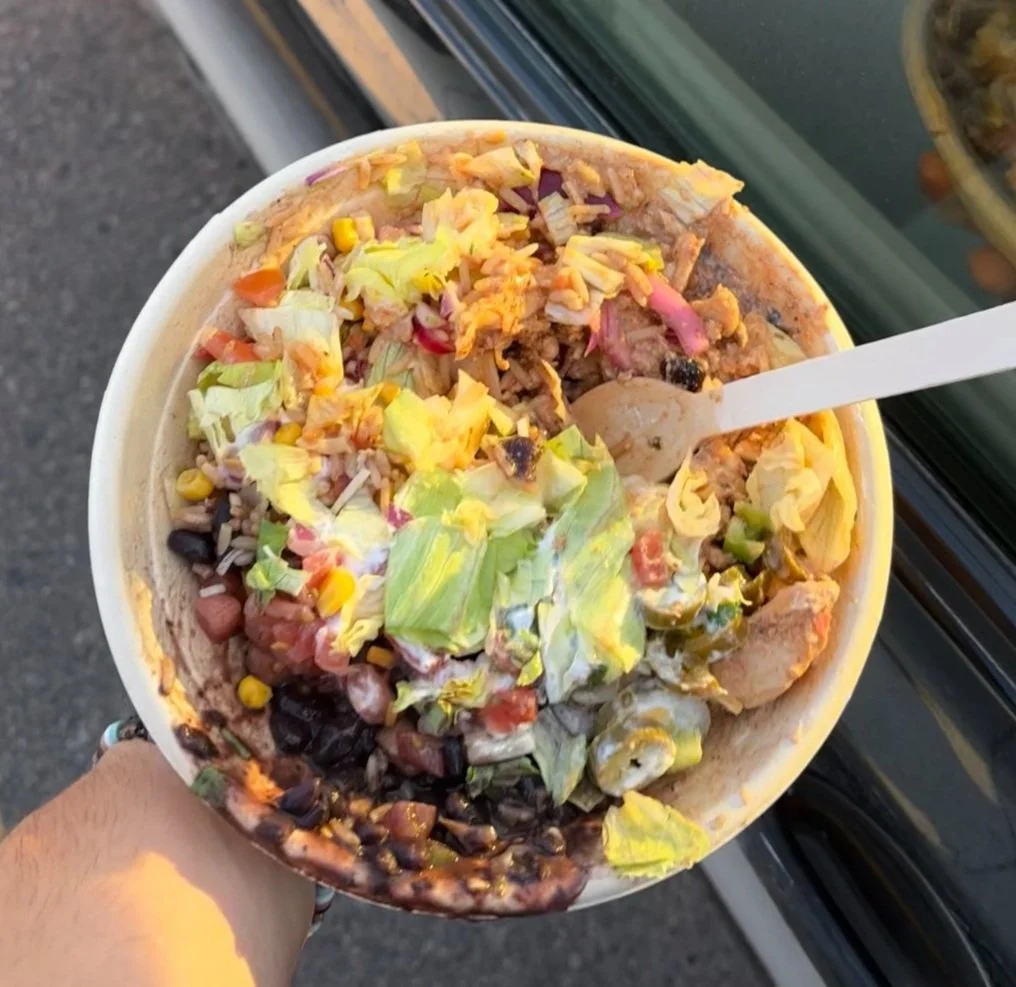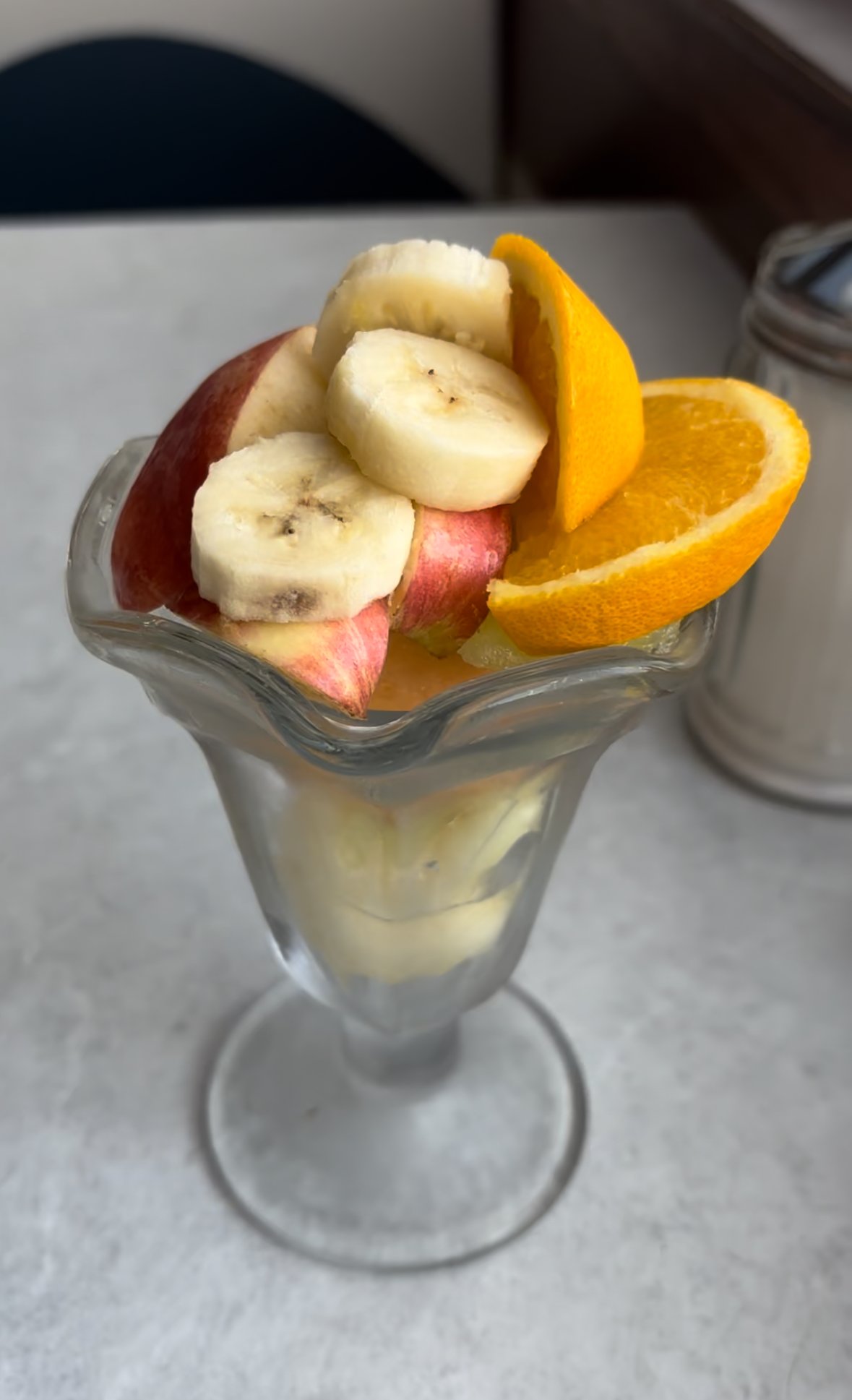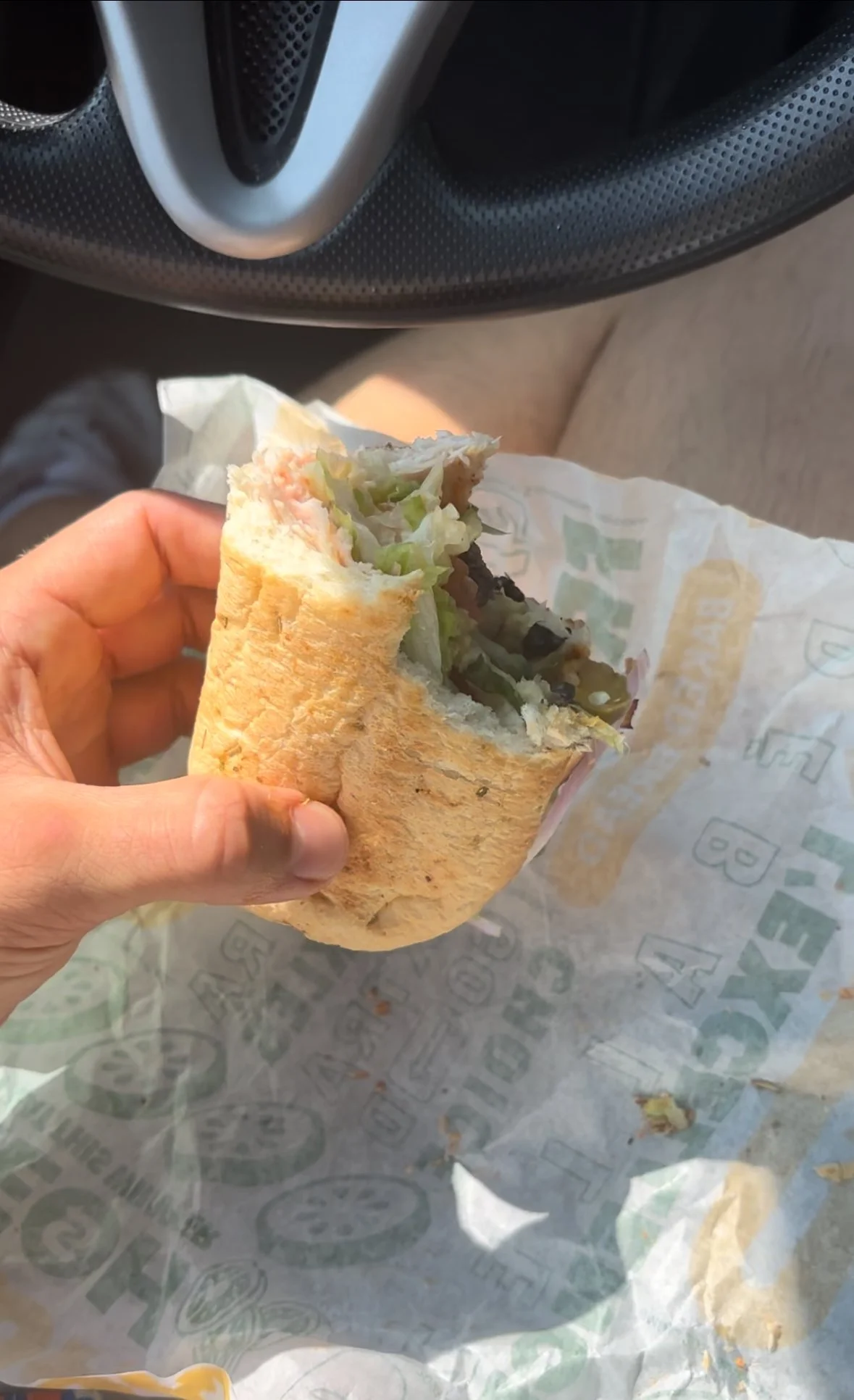Staying On Top of Your Fitness While Travelling
If you have ever travelled, you know how hard it can be to stay on top of your goals when it comes to your health. Most airports and highways are riddled with marketing campaigns designed to encourage you to make convenient decisions over ones that may be more supportive of your goals. But it’s not just your nutrition that can get thrown off the rails by your travels; the other pillars of health (sleep, stress management, and exercise) can as well. Without a coach it can be hard to navigate or think about travelling without getting more stressed and confused about the already busy schedule, so I hope this read helps you navigate your next trip!
Creatures of Habit
This may seem common sense, but the main disruptor of why travelling can make it so hard to stay consistent is the lack of routine. This could be caused by a lot of things but in my experience, this is what I have gathered. The habits we develop are triggered by cues. For example, sitting in your car would cue you to put on your seat belt, or your phone vibrating in your pocket would cue you to check it. You can read more about these cues from the writer of atomic habits, James Clear, here. You’ll notice all these cues are altered when travelling. Instead of waking up to a fridge with your pre-planned ingredients, you might be waking up to a diner being the only option for food within reach. You also have a new schedule, with new tasks. This can create a larger barrier to doing things like exercise and planning food because you now must decide when and how to fit them into a new schedule. More decisions = more opportunities to make a choice that is easier, and the human brain is great at navigating the easiest route to caloric density and decreased movement. Our brains are efficient that way.
I work with clients who travel frequently and am constantly consulting them on how to navigate training, nutrition, and sleep. Although much of what you can get done while travelling is going to be determined by your intrinsic drive to achieve your goals, there are some things you can do to make it easier on yourself.
Plan Ahead
Without a trajectory, you create endless possible choices for your brain to make when it bumps into an intersection of choice.
For example, you delay a workout to tomorrow because you aren’t feeling it, and you have no set day on when to do them. You wake up the next day and you realize the schedule is too busy to fit a workout in. Then you already skipped 2 workouts, so you are out of routine and use that as justification to try again next week. For some this might sound like a distant jump to make but I have heard it plenty of times and other personal trainers/coaches would most likely agree.
You must plan. You don’t have to plan your entire existence but pick 1-2 non-negotiables. This could be hitting 3 workouts this week and drinking a protein shake daily. Once you decide the non-negotiables, plan your route of checking them off. This might mean finding a supplement store where you can buy a small batch of whey on your trip or making sure to pack just enough so you don’t go empty handed. You could also look for gyms in the area and plan what days you are going to do your workout.
Once you have 2 things to do as non-negotiables, it becomes a much easier decision than having to navigate hundreds or thousands of decisions a day because you didn’t take the time to think about it beforehand.
I recently drove across Canada over 9 days and as someone who doesn’t travel frequently this was the first time I had to navigate the hurdles I encountered. So, I thought it would be beneficial for me to share my experience on the nuances in the next 3 sections. But how you decide to navigate your situation will be specific to that and this is why having a coach is so nice because they can help you navigate thinking about this!
Nutrition
Nutrition is the trickiest when travelling, the classical thoughts around “dieting” and being on vacation don’t align. Drinking alcohol, eating desserts, airport food, the buffet-style meals, none of those fit into what we have been told for years a diet is supposed to be. But a diet doesn’t have to inherently mean restriction. Theoretically you could be on an all-alcohol diet (you probably wouldn’t last very long, but it would be a diet). No one is telling you to restrict the experience of your vacation or the enjoyment of travelling, that mental relaxation is probably going to be more beneficial for your health in the long run than not enjoying it just so you can avoid gaining less than a pound of body fat.
So, we want to enjoy the trip, but not go so overboard that the change in foods, inflammation, alcohol, and other disruptions in our routine prevent us from getting the physiological rest we are there to get in the first place. Here are some ways to hopefully help you do both:
Fast Food
Convenience when travelling is everywhere. Airports and high-ways know how to market to you for fast-food. Saying “avoid this completely” is going to be an impossible request especially for long trips. You can eat fast food! It’s just important to be mindful that the foods served are commonly very energy-dense and not very satiating. But there are some things to look out for if you want a guiding light on picking your stops:
Look for nutrition information: big chains like Subway, burrito stops, poke, even McDonalds and Tim Hortons (or Dunkin if you’re from the states) have their nutritional information online if you are a food tracker.
If you don’t track food, try to find some non-fried sources of protein, an option with some fiber like whole grain bread or vegetables. An example of this could be opting for a burrito bowl with beans and chicken over a burger with fries.
Drop some of the sauces. We all love our mayo-based chipotle sauce, guac, ranch, etc. But these are all calorically dense sources of fat. Not inherently “bad” but easy to overdo them without noticing. I always get one fat-based sauce on my subway sub for example, but my second might be mustard, or a hot sauce. Something that still adds flavor without the calories.
Sometimes I just needed a snack to tide me over until the next city, so I would stop at a local gas station and grab a protein bar or shake until I could get a real balanced meal!
80/20 Rule
You could organize your meals so that most of the day or week is what you’d normally eat, and that one day a week or a meal every 1-2 days is something local that you want to try, or something you might not normally have at home.
Plate Design and Consumption Order
This is a great option if all your meals are provided. Reach for the more nutrient-dense options first, and fill most of your plate with those, proteins, fibrous carbohydrates, and some healthy fats. Then you can include ¼ of your plate as a dessert, or something you want to try that you might not normally eat. This way you still get to enjoy it while still feeling satiated by the other foods and not feeling overly restricted. This one is more important for buffet-style meals.
Alcohol
Hyper-optimizing coach Aidan wants to tell you to avoid this completely, but this is unrealistic, even for me. When there is an open bar at your resort, you are tired from a big day of driving, or want to enjoy the local social scene, a drink is going to happen. The problem with drinking isn’t just the calories in alcohol, which can add up with some beers and wines having 150-300kcal per serving. It’s the inhibition to your decision-making processes that tends to increase your appetite and tendency to reach for highly palatable foods (read more here).
If you want to stay on top of your goals, an easy substitute you can make is to do spirits like vodka, rum, tequila, etc. And mix them with a calorie-free drink of choice. This could be vodka water with lime, or diet coke and rum, you get the idea.
Overall, don’t beat yourself up for your choices. Enjoy a drink, have some good food. That’s why you’re on vacation. These are just some key points you can be mindful of and see if any of these substitutions can be easily made without ruining your experience. Sometimes you must nourish your mind, not just your body.
Training
When you are travelling, your gym access might be limited. This is going to take some intrinsic drive to still train. Even if all you have access to is a floor. You can still get some movement in. When I was travelling, I was lucky to be within my country of Canada, where there were gyms in major cities, so I made it a point to train early wherever I was. But you might not be so lucky.
Keeping yourself accountable for an at-home workout without the equipment or atmosphere of a gym can be a struggle. This is usually where I recommend you put on a video of an at-home bodyweight workout, yoga, or stretch session.
You don’t need to train as frequently as you might have at home, and the workouts you do might not be the best, but keeping your consistency might be what you need mentally to prevent you from relapsing when you get back from your vacation.
Here is a simple at-home workout you could do without equipment to cover some balance, flexibility, and strengthening:
Steps are usually up when you are travelling, which is a great thing. Pick some active things to do in the area! Such as going on hikes, enjoying some of the local sports or towns and sightseeing. The only thing you don’t want to do is use this as an excuse to avoid any resistance-based exercise because you are “moving”. They are not comparable if you have a plan you must stick to for athletic goals or injury rehab. Don’t get me wrong, movement is medicine, and I’ll take all I can get when on vacation but having your step count increase by a couple thousand is not the same stimulus as even a 15–30-minute bodyweight strength session.
Sleep
Sleep is the most essential pillar of health. If you aren’t sleeping, you aren’t training, you aren’t eating nutrient-dense foods, your motivation goes down, your metabolism gets shunted, etc. If you want to learn more about the importance of sleep for health, check out this study.
Step one is always going to be giving yourself the opportunity to sleep 8 hours. Make sure you are in bed for at least 8 hours. If you have an early morning planned, you should also have an earlier bedtime planned. Before you leave, have a chat with your doctor about melatonin supplementation and if it would be right for you to help you stay on top of your sleep with jet lag and time shifts.
With my road trip, I didn’t overstretch my driving or caffeine intake. I made sure I had a place to sleep and didn’t push the drive further than I needed to because I knew my sleep was the priority. I also made sure I did most of my driving in the morning, because it’s a stimulating activity and I wanted to make sure I had sufficient time to move and still unwind before sleeping. Bringing a book with you on your travels or something you can use to entertain yourself for those final few hours before bed is also a great idea.
I hope this helps you navigate your travelling, enjoy your trip and get the reset you need! What you decide to worry about and stay consistent with is completely up to you. Don’t feel like if you don’t follow 100% of what I just said that you are failing, this is just all the tips I could provide and if you pull one or two you are still being mindful and that is a WIN!












